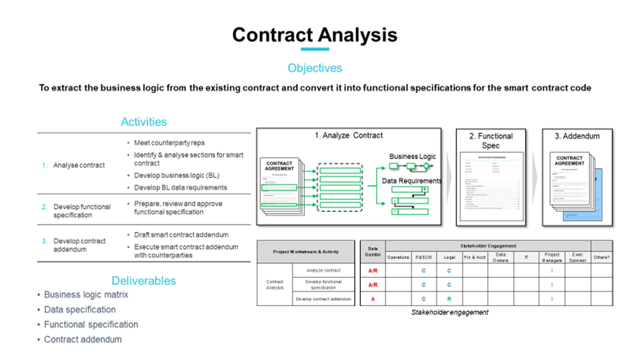1. Why bother? The business case for smarter contracting
Fundamentally, the business case for implementing automated smart contracts is eliminating the waste, or “slop in the system” that plagues every business-to-business (B2B) transaction. Over a seven-year period, we have looked at dozens of contract types and several billion dollars’ worth of transactions, primarily in the upstream oil and gas industry, but also in midstream, shipping, trucking and chemicals. In every case, we have found savings by automating or removing non-value add steps from the payment process and preventing over or under billing. The savings typically fall in the range of 5-10% of total contract spend.
Experience bears out these levels of savings time and again. The savings fall into several common buckets:
- Overbilling: Whether the logic of the contract is very simple or very complicated involving various modifiers and equations, it is always easier for the parties involved at the point of service delivery to round up to the nearest X. That might be cubic meter, truckload, shift, day or various other metrics, but the trend is nearly always against the buyer. In many cases no one person is doing anything nefarious but the simplicity of rounding up soon becomes whole percentage points across the entire spending category.
- Manual processing costs: We often engage on a project and find that the status quo process has 3-9 manual checks or processes on each transaction, by both sides, usually in 3-5 different systems including excel and email. Every manual step increases the error rate and adds additional time to get to the final transaction. Smart contracts can eliminate almost all steps after the initial service delivery, and typically 95-98% of the transactions will require no additional human touches.
- Fast Pay discounts: Many customers already have discounts for faster payment terms in their contracts but are unable to achieve them due to onerous processes. To the extent a smart contract is used to eliminate many of the steps, companies can achieve the various NET 7, 15 or 20 discounts already in place.
- Stacked processes: Most complex contracts require several layers of sub-contracting, so sellers in one smart contract are buyers in another with their subs. As each layer in the network implements smart contracts, the savings mount across parties. This manifests most directly in improving the payments waterfall from “NET Never”, which forces invoice factoring at the lowest level, to a more predictable and timelier pattern, with reduced back-office expenses for all participants.
- Better, more measurable contract clauses and terms: Smart contracts are just dumb scripts and require black and white rules. The act of converting an existing natural language contract to code requires all parties to agree on what the terms mean, stamp out the gray area, and agree to specific data sources. We’ve found this enables better collaboration and fewer disputes, but also leads to shorter, clearer and more measurable contract terms. Transparency in this area may not translate directly into dollars but supports value creation in the other areas above.
In summary, buyers want to use smart contracts to save money, and sellers benefit by reducing the time to finality and payment. Common direct areas of monetary benefit include:
- Reducing the time spent by Engineers / SMEs on invoicing 20-40%
- Reducing back office invoicing handling costs by 50-60%
- Reducing the % of invoice disputes to less than 5%
- Reduction in overbilling of 2-5% of total spend (Buyer)
- Ensuring every actual service delivered is invoiced +1-2% of total spend (Seller)
- Removal of other middleware / processing fees
- Fast pay discounts of 1-5% (where applicable)
The commercial case for smart contracting is there, now What Is a Smart Contract? We’ll dive into the definition of a smart contract and the work to implement one in the next post.



